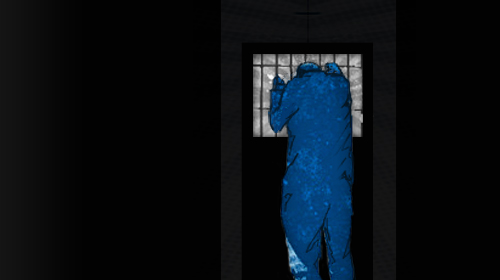Ending Solitary Confinement – The Dangers of Isolation for LGBTI Prisoners and Detainees


Recently, the Senate Judiciary Committee’s Constitution Subcommittee held a landmark hearing on solitary confinement. The goal of the hearing was to comprehensively examine and reassess the overuse of solitary confinement in federal and state correctional facilities and detention centers. Sen. Durbin (D-Ill.), chair of the subcommittee, noted the hearing was about more than just solitary confinement, instead seeking to answer the question, “What do America’s prisons say about our nation and its values?”
The ACLU has long advocated putting an end to the excessive use of long-term solitary confinement and segregated housing in America’s prisons, especially for children, persons suffering from mental disabilities or illness, and other vulnerable populations. The ACLU’s national Stop Solitary campaign focuses on educating policy makers and the public about the excessive financial cost, and incredible damage to human dignity, associated with solitary confinement. In written testimony submitted to the subcommittee, the ACLU pointed out the myriad flaws in the system: the excessive financial costs, the inhumane conditions of solitary confinement, and the devastating psychological effects those conditions have on individuals who spend days, weeks, months or even years alone in “the box.”
The ACLU discussed the devastating impact solitary confinement has on vulnerable prison populations, including prisoners who are lesbian, gay, bisexual, or transgender, have intersex conditions (LGBTI) or are gender nonconforming. Chairman Durbin himself noted the problems associated with solitary confinement for vulnerable populations during the hearing. As solitary confinement has increased, he noted it is no longer just for those who are dangerous and violent, but “[i]nstead we’re seeing an alarming increase in isolation for those who don’t really need to be there, and for many, many vulnerable groups like immigrants, children, LGBT inmates, supposedly there for their own protection.” While correctional officials often justify the use of solitary confinement as necessary protection for LGBTI prisoners, the stigmatizing effect of this practice can cause profound, long-term psychological damage. The recently finalized Prison Rape Elimination Act (PREA) regulations recognize that isolation of LGBTI prisoners can be psychologically harmful and physically dangerous, yet the practice remains all too common.
In immigration detention centers, LGBTI detainees are often subjected to discrimination, harassment, and physical threats. The ACLU of Arizona recently released a report detailing detainee abuses entitled “In Their Own Words: Enduring Abuse in Arizona Immigration Detention Centers.” The report highlighted the unique struggles faced by LGTBI detainees placed in solitary confinement. One transgender detainee, Tanya, spent over six weeks in the Special Housing Unit (SHU). Once there, she was subject to demoralizing and dehumanizing treatment including physical abuse from detention center personnel and stigmatization once she was released from solitary confinement. Most LGBTI immigration detainees have not been convicted of any crimes, yet face incredibly degrading isolation and abuse in so-called “special housing units.” The Committee’s hearing this week marked a critical step toward eliminating abusive solitary confinement practices in the future.
Understanding the dangers of solitary confinement and exploring successful alternatives already being implemented are necessary first steps toward putting an end to the overuse of solitary confinement. With continued pressure and advocacy, the ACLU hopes to play a leading role in bringing about a safe, sensible and humane solution to this critical civil liberties and human rights issue.
Learn more about solitary confinement: Sign up for breaking news alerts, follow us on Twitter, and like us on Facebook.

